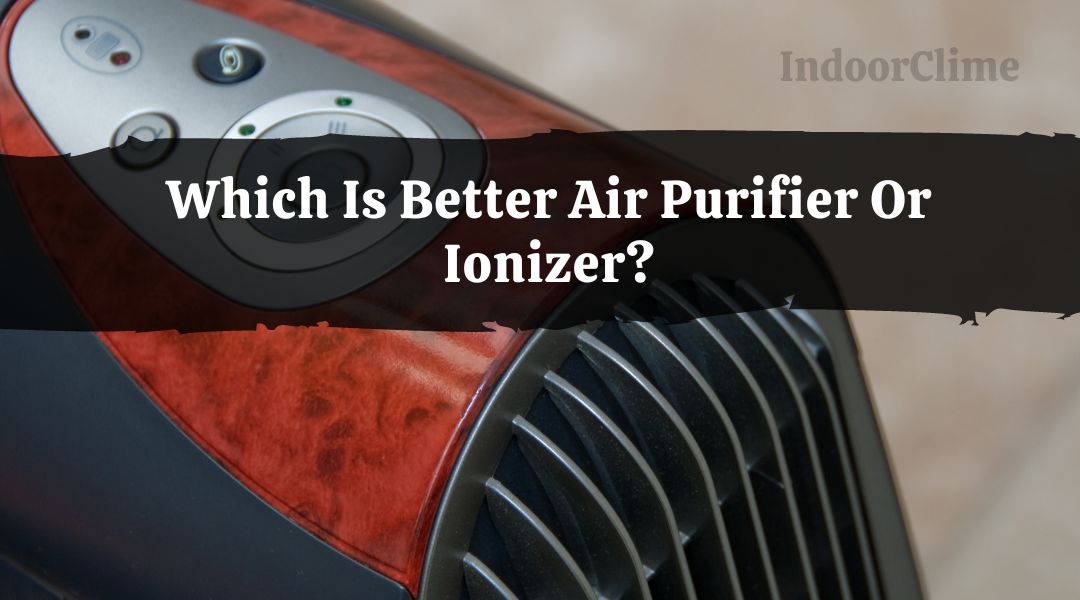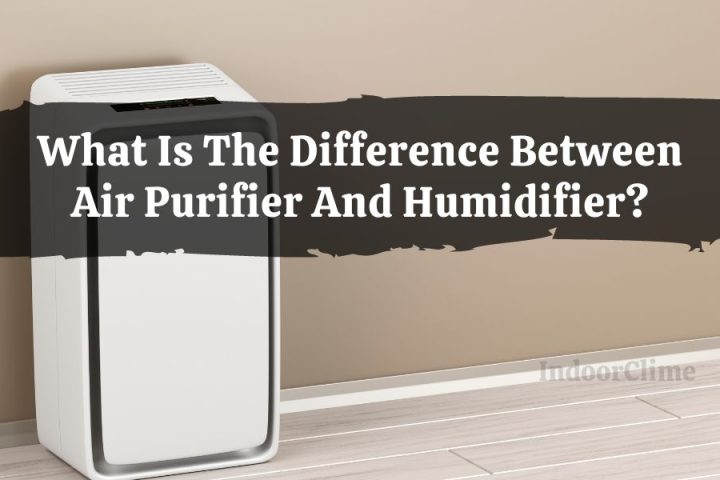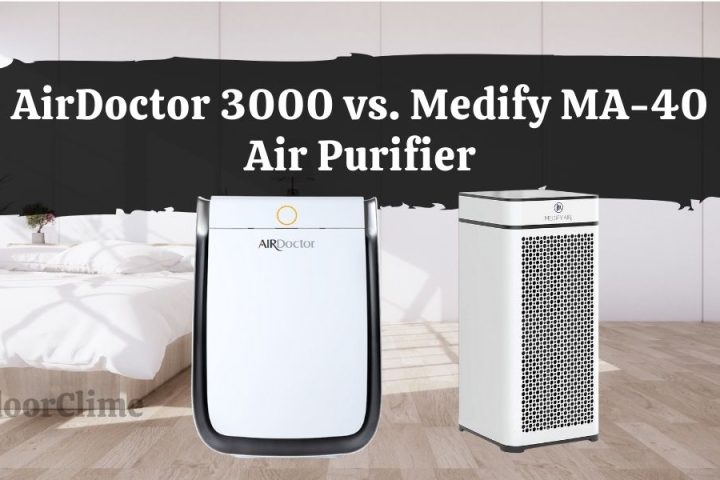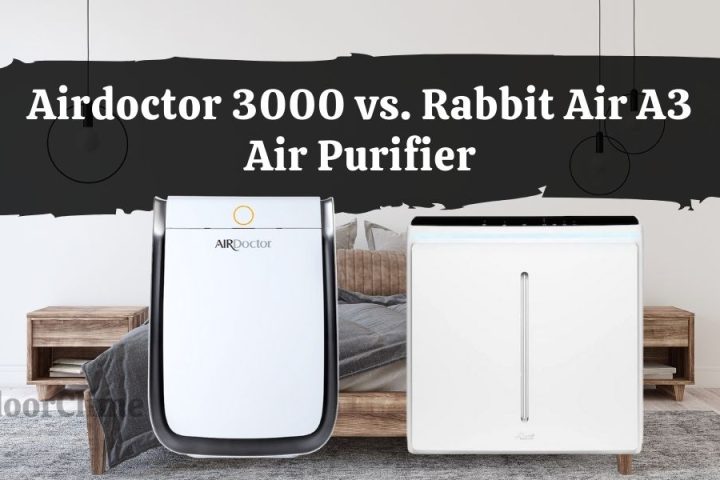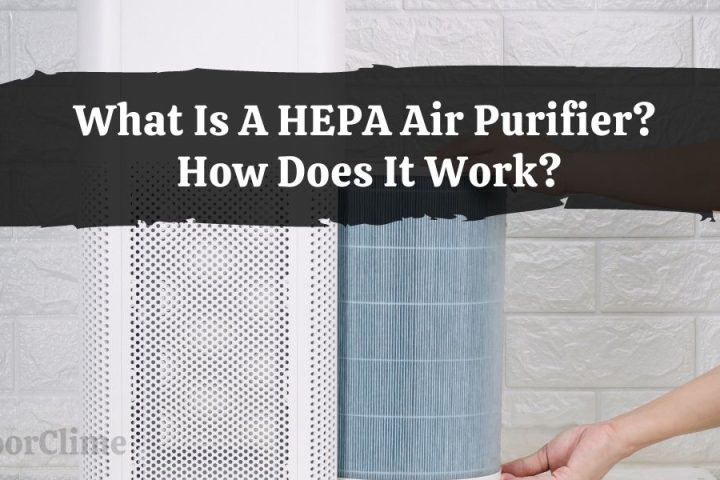Wanting to have clean air is something that all of us want. And, with various devices in the market today offering “cleaner air,” how will you choose which one suits you best?
Of course, the first thing to do is figure out how these devices work and utilize them better.
The kind of air we breathe plays an essential role in our health, so buying the best device that would do the trick is something we shouldn’t skimp on.
It is especially true if you suffer from allergies, asthma, and respiratory and skin conditions. So which device can help you achieve this – an air purifier or an ionizer?
An ionizer uses negatively charged ions and transfers their charges to the pollutants in the air, causing them to stick together and eventually fall to the ground.
On the other hand, an air purifier uses a HEPA filtration system to remove and trap airborne particles. It means that the pollutants are directly filtered out of the air.
To find out more about air ionizers and air purifiers, make sure to read on!
Air Purifiers vs. Ionizers: What’s the Difference?
First things first – an air ionizer is a type of air purifier. However, to avoid confusion, we will use the terms “air purifier” to refer to HEPA air purifiers and “air ionizer” to refer to ionic air purifiers.
As stated, air ionizers use negatively charged ions. These negatively charged particles are released into the air and combine with pollutants, making them stick together. Once they get too heavy, they start dropping to the floor. Once they have piled up, these pollutants can be vacuumed up.
Air ionizers are cheaper when compared to air purifiers which are great if you want cleaner air on a budget. Aside from that, ionizers can cover larger areas when compared to an air purifier.
On the other hand, air purifiers use HEPA filtration systems to trap airborne particles. These particles include pollen, mold spores, dust, bacteria, and viruses.
What’s great about this is that they trap the pollutants through a filtration system, meaning they won’t stick to your home’s surfaces or re-enter the air when left unattended for too long.
Another thing is that an air purifier does not emit ozone, unlike most air ionizers.
Air Purifier vs. Ionizer: How Do They Affect Air Quality?

Most air ionizers emit ozone (considered an air pollutant), so you might be gaining more in your quest to eliminate air pollutants.
Aside from that, ionizers don’t specifically trap the pollutants in the air – it just makes them stick together and drop to the ground.
On the other hand, air purifiers filter the pollutants in the air. Still, they cannot directly remove fouls smelling odors or chemicals from the air unless you incorporate an additional activated carbon filter (which, of course, means additional cost).
Which Is Better: Air Purifier Or Ionizer?
Both air purifiers and air ionizers benefit from removing pollutants and unwanted particles from the air. Air purifiers must meet strict standards before being granted a HEPA label.
They are available in a wide range of sizes. However, they can be pretty expensive to purchase and maintain.
Meanwhile, ionizers are much more economical. They do not require costly filters and are more affordable at purchase.
However, they can be less effective when compared to air purifiers mainly because the particles are not trapped in a filter but are dropped to the floor, waiting to be cleaned up.
If you fail to do your chores, the pollutants, allergens, and dust can stir back into the air. If you are after better air quality and have a budget to spare, you should go for air purifiers.
However, suppose you are looking to save on costs but want good air quality anyway. In that case, you can purchase ionizers, provided you should always see to it vacuum the floor and clean your home’s surfaces to remove the pollutants entirely.
Nowadays, are 2-in-1 options available, for example, AirDoctor air purifiers.
People Also Ask
Is an ionizer the same as an air purifier?
No, they are not the same. Air purifiers and ionizers use different technology to cleanse the air. Purifiers remove particles from the air by trapping them in a meticulous filtration system.
At the same time, ionizers clump them together to fall to the ground and be vacuumed.
Should you get an air purifier with an ionizer?
It depends on your budget. You can opt for an air purifier with an ionizer for cleaner air.
Ionizers can be pretty helpful in reducing allergies and other chemical sensitivities, as ionic air purifiers can effectively remove pollutants like dust, pollen, viruses, and even chemical toxins.
What is better, HEPA or ionic?
It depends. Ionic purifiers are cost-efficient and filter-free. On the other hand, HEPA filters can remove even the smallest dust particles in the air.
Again, I recommend you go for ionic purifiers if you are on a tight budget (provided you will always do some cleaning at home).
If you have money to spare, I suggest you go for purifiers with HEPA filters since these purifiers are more effective and efficient.
Do air ionizers remove the odor?
No, they do not. Ionizers do not directly address pollutants in gas form, meaning they cannot precisely remove foul odor from the air.
What is the disadvantage of an ionizing air purifier?
Ionizers do not directly remove air pollutants- they clump them together so they can fall to the ground, waiting to be vacuumed.
In addition, ionizers produce small amounts of ozone, which can be a lung irritant and harmful to the environment.

